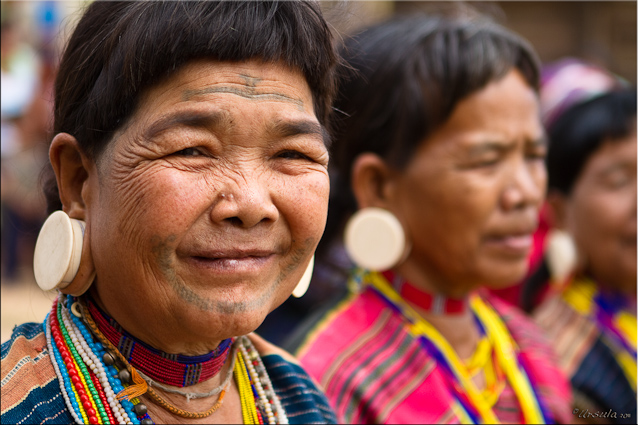
Lawae Woman with Traditional Face Tattoos and Elephant Tusk Ear Plugs
Bong! Bong! Bong!
The sound of gongs reverberate in my head; deep, surprisingly melodic tones that almost transport me back to Bhutanese monasteries… But in this image there are no tall, ornately carved and painted wooden buildings; in fact we are outdoors on dusty ground, surrounded by dry trees, old people and children, with few buildings at all.
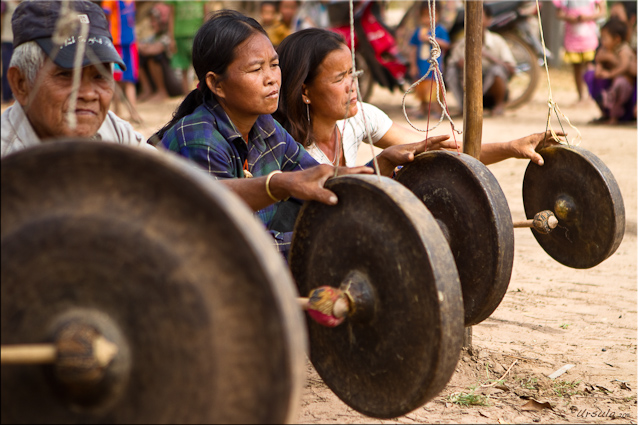
Lawae Elders Welcome us with Gongs
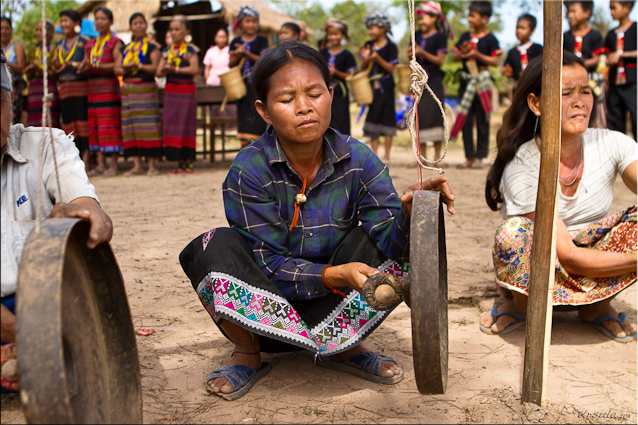
A Lawae Woman Beats a Gong while Others Sing and Clap
I’ve heard of writer’s block. What I had didn’t feel like a block – more like a maelstrom. Images, sentence fragments and half-formed ideas were swirling around my head at dizzying speed. I felt like I was caught in a twister; no – a dust storm.
It was late January, and I had just returned from Attapeu, one of the southern-most provinces in Laos. I was supposed to be writing a nicely-structured one-thousand word photo essay about the textile weavers there. That may sound easy enough, but I had come home with an over-packed suitcase, hundreds of photos, dust in every pore of my body, impressions in every cell of my brain and no idea where to start. My thoughts were as jangled as my bones and nerves after four days of bouncing over the patchy tarmac highways and dusty dirt-pack backroads of southeastern Laos in a van as one of a group of nine individuals – individuals with experiences and dispositions as different as their own cultural backgrounds and nationalities. In fact, as diverse as those communities we were travelling to visit! It is so easy to forget that one of the joys (and challenges) of travel, especially in remoter regions, is the journey itself and the people one shares it with.
It always takes me a while to sort through and digest my impressions of a trip, especially one as rich with experience as this one had been. The journey we had embarked on was a Thai Textile Society trip, involving a one hour flight from Bangkok to Ubon Ratchatani in Northeastern Thailand and a 385 kilometre drive. This doesn’t sound like much, until you factor in nine personalities, assorted stops, and the vagaries of an overland border crossing at the small town of Chong Mek. I left my home before light and reached the hotel after dark, following what was an interesting but extremely long day.
Attapeu is not one of the more frequented tourist destinations in Laos. We were there principally because our group leader, Khun Napat Sirisambhand, has been working with the local women’s organization, the Attapeu Lao Women’s Union, for the last eleven years. With the initial support of a small World Bank grant, they are working together to help develop the quality and promote the marketing of indigenous crafts, in particular: basketry, pottery and weaving. I was there because it was an opportunity to travel ‘off-piste’ and because I see this sort of small community development project as a perfect way to support local self-determination. My travel companions were there to learn about the local weaving methods and to buy textiles.
Our first morning out, we travelled 45 kilometres south of Attapeu, much of it on dirt roads, to the small Lawae village of Pu Wong. Laos is a relatively small country with a population of only about seven million people. In spite of this, according to official government documents there are 47 recognized ethnicities – with over 160 minor ethnic groups speaking 82 distinct living languages. Attapeu has only about 115,000 people, but they comprise of 14 ethnic groups, many of whom cross the southern borders into neighbouring Cambodia.

Traditional Beads and Welcome Songs

Elephant Ivory Ear Plugs and Beads
The Lawae (or Lavae, Brao or Brow, but not to be confused with the Lave or Lavi!) come from the Mon-Kmer language tradition. Traditionally, the women have worn earring plugs made from elephant tusks, with the size determining social status, and have cut the middle of their front teeth and had their faces tattooed for beauty. While these customs are dying out, the older women in the community we visited were living examples. What is not dying out is the pipe: small tobacco pipes were an almost permanent fixture in the mouths of many of the women! These villages have no weaving tradition; in the past, the Lawae have made clothing from tree bark fibre. These days, they tend to opt for fabrics from the local markets.
The whole village turned out to greet us with those musical gongs, singing and dancing. The dances, as is the case in most of the region, pay tribute to rice and its place in the cycle of life. Some of the songs were accompanied by what looked like a bamboo pole. It is quite amazing that comes out this simple length of bamboo when it is clapped with a cupped hand at one end by one person while someone else claps their hands rhythmically at the other end.

Singing Children

Singer and His Fan - He had a terrific voice, but what amazed me was his 'Mike Technique' in a village with no electricity!

Playing the Pipes

Magic Smile!

Looking to the Future
This community seems to comprise far more then the national average of 41% of population between newborn and 14 years… children were everywhere! Houses are simple bamboo structures with cooking and food preparation done out doors. Although there was electricity nearby, it didn’t reach most of the homes, and of course, running water was a pipe dream. While we were there, the elders punctuated their pipe-tobacco smoking with drinking with straws from the communal rice wine pot.

Hanging with His Sister

Smoking Gran ~ Notice the Tattoo Remnants and the Elongated Ear Lobes

Around the Rice Wine Pot

Straw in the Rice Wine

"Me and My Gran"

Just Chilling

Smiles all Around ~ Notice the Filed Front Teeth on the Older Woman.

Smiling Elder ~ This Woman was a Great Character and Clearly a Village Leader!

Open-Air Kitchen - Preparing Chicken for Dinner

Lawae Child at Home

Lawae Grass Homes, Pu Wong District Town

It's a Long Way Home! Pu Wong District Town

So, I’ll keep the weavers for next week, and leave you in the mean time with the rich earthy smells of dust, tobacco and rice wine, and the sounds of gongs and laughter.
Happy Travels!


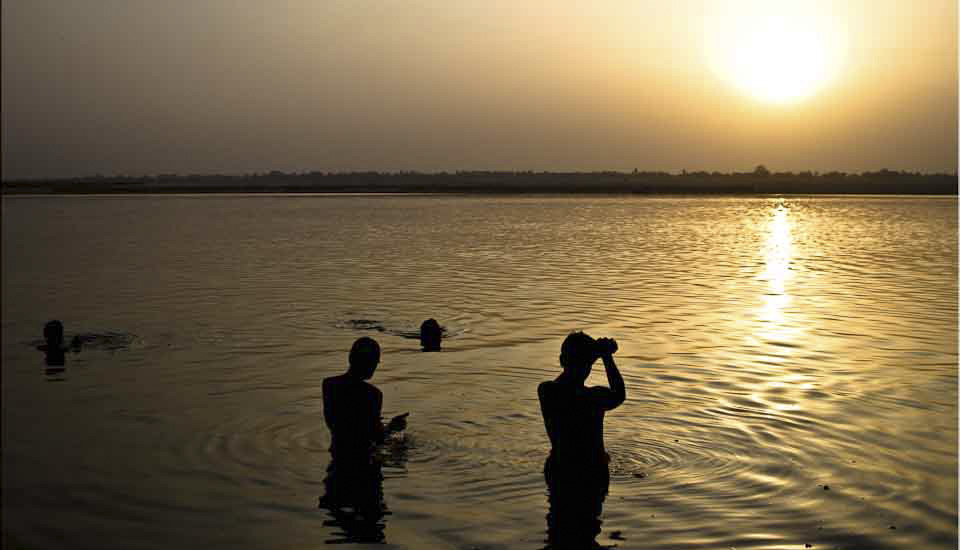






















.png)
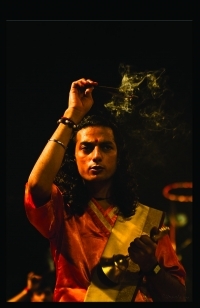
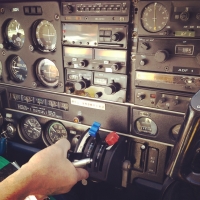
still think you should be compiling a book of your travels… these are amazing and mostly unheard of – fabulous as always and look forward to the next installment, certainly a pleasant diversion from electioneering ;-D
Thanks, Signe! I’m impressed you had time to look in with your busy schedule. Council meetings sound like my idea of hell.
If they come to my door with a book deal, I’ll let you know!
Wow!!
🙂
amazing! I love the writing and the photos 🙂 Well done!
Thanks, Anthea! You are very kind. I’m looking forward to your Som Tam story. 😉
Nice job! I think these are some of your most compelling images and make for a lovely set. Love the boy with the imaginary microphone and there are some really delightful portraits in this collection. Good on you.
🙂
Aren’t you sweet, Mr Gough. Cheers! 😀
[…] particular trip, to Attapeu and to the Lawae and Taliang villages in the region, was rich with cultural experiences. But, I find it is often […]
[…] reminded me how much I love Laos: the songs, dances and smiles of the people, the brilliant hand-woven fabrics, the colourful markets, the ethnic villages, the […]
very nice photos, here is the music that goes with it
KINK GONG MUSIC CATALOGUE
IS A COLLECTION OF ETHNIC MINORITY MUSIC YOU HAVE PROBABLY NEVER HEARD BEFORE : 142 CDs
2 LP 12″ GONGS OF CAMBODIA & LAOS on TIGER GONG PARIS F 2013
https://soundcloud.com/gongs-of-cambodia-laos
best
laurent jeanneau
Thanks, Laurent!